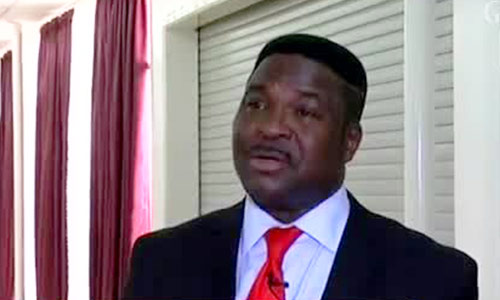KNOW THE LAW 18/08/2022
Divorce Settlements in Nigeria

A divorce settlement is an arrangement, adjustment or other understanding reached, as in financial or business proceedings between two adults who have chosen to divorce. It serves as the final legal agreement between these adults for documenting the terms of their divorce.
A divorce settlement in Nigeria entails which spouse gets what property and what responsibilities once the marriage is over. It deals with child custody and visitation, child support, alimony, health and life insurance, real estate, cars, household items, bank accounts, debts, investments, retirement plans and pensions, college tuition for children, and other items of value.
Under Nigerian matrimonial law, settlement of family properties takes place upon the dissolution of a marriage, provided there are any joint assets to be settled. A petitioner (spouse filing for the divorce) is expected to ask for the proposed settlement in his or her divorce petition. And where the Respondent (a spouse being sued) is the one seeking for the settlement of properties, such prayer must also be included in his or her answer (response to the divorce petition).
Having regards to the above, the following are the reliefs that can be claimed by the party seeking the dissolution of marriage in Nigeria:
- MAINTENANCE (SPOUSAL SUPPORT/ALIMONY)
Spousal support or Alimony is a monthly payment made by one spouse to another in accordance with either a settlement agreement or a Court’s order. The purpose of spousal support is to correct any unfair economic effects caused by a divorce, such as when a stay at home parent suddenly needs a source of income after the divorce but has never held a job.
It is noteworthy that an award for maintenance is at the discretion of the presiding judge over the matter, the judge has the freedom of choice in determining exactly what one might get considering the social standing of the parties and their lifestyles, the respective means and earning capacity of the parties, the age of the parties, the conduct of the parties during the marriage and the existence and the number of children.
Furthermore, a party making an application for maintenance has the right to receive maintenance for a value, which will be sufficient to maintain the marital standard of living as long as the other party is in a strong financial position and is able to afford such an order. However, a maintenance order will terminate on the remarriage of the party order is granted in favor.
- CHILD SUPPORT
Child support is an ongoing periodic payment made by a parent for the financial benefit of a child (or parent, caregiver, guardian, or state) following the end of a marriage or other relationship.
A child of the marriage for the purposes of maintenance is not confined to a child born to a lawful marriage between the spouses. It covers natural but illegitimate or legitimated child born by the two spouses. A child adopted since the marriage jointly by the spouses is also a child of the marriage
The children of the marriage for which a maintenance order can be made are those who are less than 21years old unless the court is of the opinion that there are special circumstances that justify the making of such an order for the benefits of a child older than 21 years. So a Maintenance order with regards to children will usually remain valid until the child is 21years old.
- SETTLEMENT OF PROPERTY AND PAYMENT OF LUMP SUM
This means conferring title over a property from one party to another. It is the transfer of property of a party or jointly owned to the other spouse.
The court has discretion in regards to the award of immovable property to a party claiming maintenance; this relief must be expressly provided for in the divorce petition or answer and not afterthought.
The Court may also order that a lump sum should be paid by one party to another. The party seeking a lump sum from the other party must clearly state the ground upon which such demand is being sought. Such a party is expected to state his or her contribution or support to finances or wealth of the other part that warrants the request for payment of the amount.
Additionally, the property to be settled must belong to either one of the parties to the marriage as the court cannot settle a property that belongs to neither of the parties. Furthermore, the court would only settle property for the benefit of a child below 21years except for special circumstances where it is justifiable to settle the property for the child’s interest.
- CHILD CUSTODY
The Child’s Right Act defines a child as “a person under the age of eighteen years. The paramount consideration in the award of child custody is the interest of the child in question.
A decision in “the best interests of the child” requires considering the age and sex of the child, the wishes of the child’s parents, the wishes of the child, and the child’s relationship with each of the parents, siblings, other persons who may substantially impact the child’s best interests, the child’s comfort in his home, school, and community, and the mental and physical health of the involved individuals. The parent with custody controls decisions pertaining to the child’s education, religious upbringing, and health care.
By and large, any party (petitioner or respondent) seeking the custody of a child should seek for such custody in the filing for the divorce petition or answer. Where both parties are contention as to whom the custody of the children of the marriage being given to, the Court would be left with making the decision after careful consideration of the facts and circumstances of both parents. However, the Court may award joint custody or order a visitation’s right in favor of the spouse who lost the right to the children’s custody.



